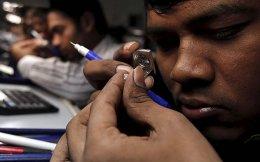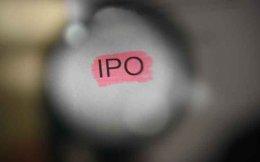Year 2013 continued with the bad news for the Indian general partners or GPs running India-focused PE/VC funds or investment mandate. The India story has taken a major hit with the country facing macroeconomic headwinds like slowing economic growth, widening current account deficit and outflow of foreign investment.
Besides, the PE industry remains plagued with lower returns due to the high valuations paid in the boom period of 2006-2008 and relatively few exits as capital markets, the main source for exits, have remained shut. This coupled with the depreciating currency and increasing corporate governance issues in portfolio companies.
But GPs see a silver lining in this cloud as many feel this could be great vintage for new investments. Also on the venture side, valuations for Indian startups have never been better.
VCCircle spots some trends which have dominated PE/VC markets during the year.
Consolidation continues; PE teams see more churn
The broad consolidation in the PE market continued with several PE firms with limited dry powder focusing on portfolio management, while others deciding to hold investments in the country. This has led to an increasing churn in private equity teams, with senior executives being asked to leave or quitting.
The year started with British PE fund 3i’s Asia head Anil Ahuja and partner Girish Baliga quitting the fund as the firm decided to stop investments in India. Standard Chartered Private Equity's co-head Alastair Morrison and three managing directors—Ravinder Singh Grewal, Mukul Nag and Rahul Raisurana—also quit after the PE firm decided to scale back operations. Other firms like Kubera Partners, Aureos Capital (acquired by Abraaj) and DE Shaw also saw churn in their teams.
But the biggest shake-up came when The Blackstone Group rejigged its India operations, moving long-standing chief Akhil Gupta to the position of non-executive chairman and naming Amit Dixit and Mathew Cyriac as co-heads of the private equity unit. The development came at a time when Blackstone's India private equity portfolio has come under increasing scrutiny, especially its listed investments.
Navis Capital Partners said that it will not be investing in India from its new fund, while L Capital Asia also de-focused from India because of the broader macro-economic issues and the valuation overhang.
The year of LBOs
While 2012 was dominated by mid-market buyout transactions due to divestitures, 2013 saw several leveraged buyouts (LBOs). Most of these transactions were helped by the fact that though the businesses were Indian, the companies were registered in overseas jurisdiction.
The year started with private equity major KKR & Co acquiring a controlling stake in the Alliance Tire Group (ATG) from Warburg Pincus for an enterprise valuation of nearly $650 million. It was followed by Partners Group buying CSS Corp for $270 million and Apax Partners buying GlobalLogic, an offshore software R&D services provider, for $420 million.
In what was one of the largest buyout transactions in the Indian IT space, Baring Private Equity Asia acquired 71 per cent stake in Hexaware Technologies Ltd for $443 million. As Baring PE Asia has become the promoter of Hexaware, it added leverage to the transaction by pledging part of its holding in the company with Standard Chartered Bank, Hong Kong.
Secondaries gain steam
Secondary transactions gained pace in 2013 as a major source of exits since capital markets virtually remained shut for primary issues, and market rally remained confined to large-cap stocks. All the leveraged buyouts mentioned above were driven by secondary exits.
While the KKR-ATG deal gave exit to Warburg Pincus, Apax-GlobalLogic provided exit to WestBridge, Sequoia, Goldman Sachs and New Atlantic Ventures. Partners-CSS Corp deal was also driven by the need of the target company's investors—SAIF Partners, Goldman Sachs and Sierra Ventures—which were looking to exit while General Atlantic sold its shares in Baring PE Asia-Hexaware deal.
Healthcare continues momentum; pharma sees large deals
PE investment in the healthcare sector saw fresh highs surpassing the previous best of 2012 even as the overall PE deal activity in the country remains soft. This year, there have been 72 PE deals worth $1.16 billion against the previous best of PE investment of $1.07 billion spread across 65 deals in 2012. This means roughly a tenth of all PE money flowing into Indian firms went to healthcare sector this year.
December alone saw several large deals in healthcare. Carlyle picked up a minority stake in Global Health Pvt. Ltd, which owns, manages and operates the super-specialty hospital ‘Medanta—the Medicity’ in Gurgaon, for $156 million through a mix of primary issue and stake purchase from Avenue Capital. Quadria Capital, German development finance institution DEG and Swedfund also acquired a majority stake in Medica Synergie from ICICI Venture.
Besides healthcare services, pharma sector also saw some large deals this year. KKR acquired large minority stake in Gland Pharma for $200 million, buying stake of EILSF. Blackstone sold its equity stake in Pune-based drug maker Emcure Pharmaceuticals Ltd to Bain Capital for nearly $120 million. Actis invested $48 million to pick a significant stake in Indore-based active pharmaceutical ingredients (API) company Symbiotec Pharmalab Ltd.
Consumer internet sector sees mega valuations
2013 was also a year of reckoning for Indian consumer technology space, with a handful of startups touching $100 million valuation mark. Zomato, an online food directory, was valued at $155 million in a round of funding led by Sequoia Capital India. The investment would help the company expand into global markets like South America and Africa, making it one of the first India consumer internet companies to do so.
redBus, an online bus ticketing player, was acquired by South Africa's Naspers at a valuation of $125 million. The deal was a landmark in India's consumer internet as it was the largest acquisition in the space yet. The deal also gave lucrative exit to redBus' venture capital investors Seedfund, Inventus Capital and Helion Venture Partners.
Another major deal was when US-based Endurance International Group Inc, a provider of cloud-based SMB solutions, acquired a part of Mumbai-based Directi for $110 million. Established in 1998 by Bhavin Turakhia (19 years of age then) along with his brother Diyank with Rs 25,000 ($600 back then) lent by his father, Directi develops innovative mass-market web products with more than 25 offerings.
E-tailers continued their capital raising exercise, with e-commerce poster boy Flipkart raising a massive $360 million round of funding, getting valued at $1.6 billion.
Mid-market funds get traction; fundraising cycles stretch to 24 months
Even as the broader fundraising market remains tough, several mid-market focused funds like Lighthouse, Ambit Pragma, Samara Capital, BanyanTree, Zephyr Peacock, InvAscent's India Life Sciences Fund II gained traction during the year, making interim closes. On the flip side, GPs continue to see fundraising timeline stretch to 24-month cycles against 12-15 months earlier and LPs talk tough on fees for managing their money.
Take for instance, Motilal Oswal Private Equity, which finished raising Rs 1,000 crore for the second fund in August, took two years to raise the fund and made four interim closes. This was after building a track record of 7x returns from its partial exit from Jaipur-based non-banking finance company AU Financiers and 3x return from another part exit from Pune-based dairy firm Parag Milk Foods. Even Kedaara Capital, backed by global private equity major CD&R, took over two years after formation to close its fund.
Auto ancillary catches PE investors’ eye
In 2013, four private equity majors—KKR & Co, Warburg Pincus, Citigroup Venture Capital International (CVCI) and The Blackstone Group—have deployed over $600 million in the sector. This is higher than $415 million which was invested in the auto ancillary sector in 2007, the previous record year, followed by $352 million in 2006, according to VCCEdge.
Dipping valuations in the sector and depreciation of rupee have made this an attractive bet. Interestingly, three of the four PE investments in the auto ancillary space were buyout or control transaction. These were Blackstone management’s buyout of Agile Electric, KKR buying 90 per cent in Alliance Tire and CVCI taking ‘substantial stake’ in Sansera.
Mega investors target real estate
The year also saw large global investors, including pension funds and sovereign wealth funds, partnering with local investors and developers to take exposure to Indian realty space.
GIC Singapore partnered with private equity major KKR & Co to set up a realty-focused NBFC besides tying up with Singapore's developer-investor Ascendas to invest S$600 million (Rs 3,000 crore) in Indian property. Shapoorji Pallonji Group and Canada Pension Plan Investment Board (CPPIB) announced the formation of a strategic alliance to acquire FDI-compliant, stabilised office buildings in the major metropolitan areas of the country. CPPIB will own 80 per cent of the venture with an initial equity commitment of $200 million.
Mahindra Lifespace Developers and SCM Real Estate, the investment arm of Standard Chartered, would together invest Rs 1,000 crore for residential developments in India.
Gulf SWFs Abu Dhabi Investment Authority (ADIA) and Qatar Investment Authority (QIA) have appointed Kotak Realty Fund to make investments on their behalf during the year.
(Edited by Joby Puthuparampil Johnson)







